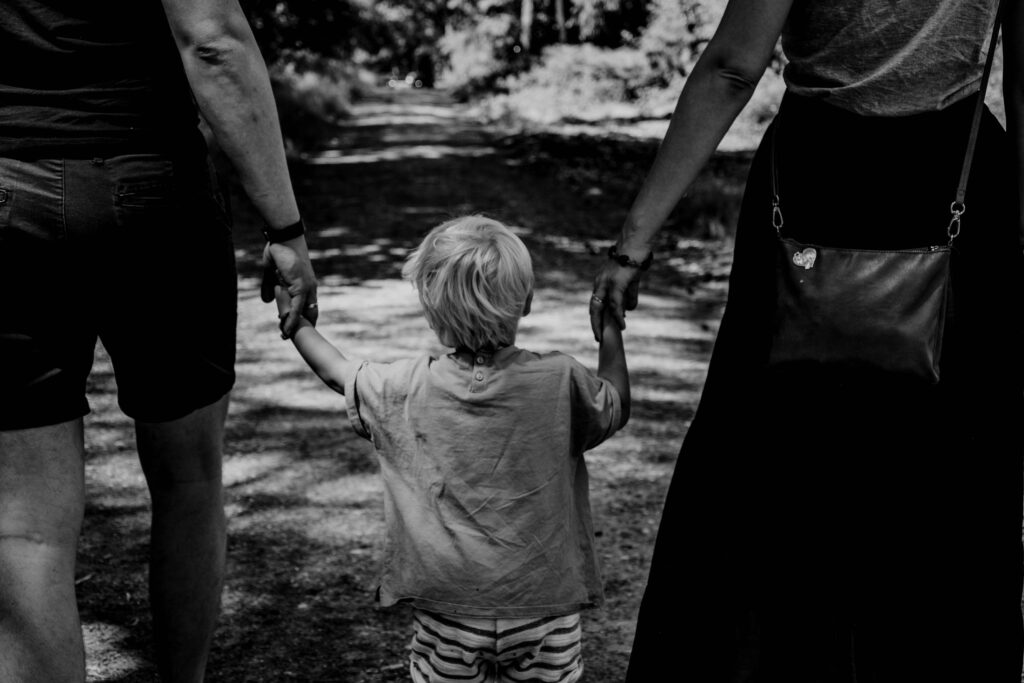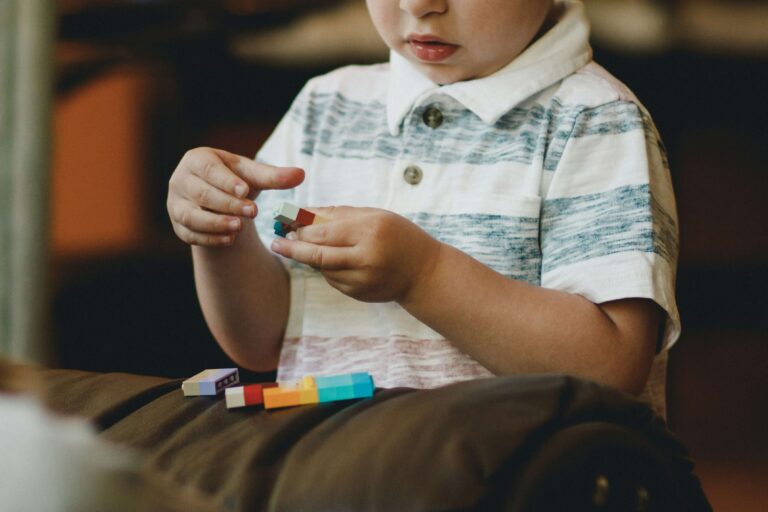5 Tips for New Parents of Autistic Children

Table of Contents
When your child is diagnosed with autism, it’s not just their life that changes. Your whole family’s world shifts too. Parents of autistic children often carry the weight of appointments, school meetings, therapies, and constant advocacy, all while trying to keep life feeling “normal.”
It’s easy to forget about yourself in the process, but your wellness is not optional. The stronger and more supported you are, the better you can show up for your child and for yourself.
This posting is about you, your family, and the village that surrounds you. Let’s talk about how to take care of yourself, nurture your other children, and find community so you don’t have to walk this road alone.
Self-Care for Parents of Autistic Children
Parents of autistic children are often told to take care of theirselves. But what does that actually mean when your days are packed with therapy appointments, meltdowns, and endless to-dos?
Self-care doesn’t have to be fancy or expensive. It’s the small, quiet choices that refill your cup:
- Rest without guilt. Some days you’ll feel like you didn’t do enough. Remind yourself that parenting an autistic child is full-time advocacy.
- Make tiny rituals. Morning coffee on the porch, journaling before bed, or five minutes of stretching can be enough to ground you.
- Accept help. If IHSS, Regional Center, or family can give you respite, take it. Rest isn’t selfish; it’s survival.
- Find professional support. Many insurances (and Medi-Cal) cover therapy for caregivers. Having someone to talk to makes a huge difference.
Think of it like airplane safety instructions: you have to put on your oxygen mask first. Parents of autistic children can’t advocate effectively if they’re running on empty.
How to Explain Autism to Siblings
Siblings of autistic children often have their own emotional journey, one that deserves care and understanding. They might feel protective, confused, or even jealous of the attention their sibling receives.
Here’s how parents of autistic children can help siblings make sense of it all:
- For little ones (ages 3–7): “Your brother’s brain works differently, so he needs extra help. But he loves you the same.”
- For school-age kids (8–12): “Autism means your sister might have trouble with social rules or get overwhelmed sometimes. It’s not your fault.”
- For teens: Involve them. Let them read or watch content made by autistic people. Encourage open, honest talks.
And don’t forget one-on-one time. Even ten minutes of special attention can remind siblings that they’re just as loved and important.
Many Family Resource Centers in California also offer sibling support groups—safe spaces where kids can meet others who understand.
Finding Community: Support for Parents of Autistic Children
Community can be a lifeline. Other parents of autistic children understand the late-night worries, the small victories, the exhaustion, and the love all mixed together.
Here’s where you can start:
- Family Resource Centers (FRCs): Every California county has one, offering workshops and parent-to-parent mentoring.
- Regional Centers: These often host parent groups or connect families with local networks.
- National organizations: The Autism Society of America has local chapters that hold events and community gatherings.
- Online communities: Facebook groups such as Autism Parents California or Reddit forums can provide advice or solidarity when you need it most.
Sometimes, what you’ll find in these spaces isn’t just information. It’s friendship. And for parents of autistic children, that’s priceless.
Tips for Taking Your Autistic Child to Public Places
When my son, Luca, and I were having the hardest time understanding each other, his meltdowns were at their peak. He was between five and seven then, and it felt impossible to take him outside. We also had his little sister to care for, which made things even more challenging.
But we made a commitment to try. We took him out almost every day, even when it was hard. Over time, Luca began to learn the rules of different places, and something beautiful happened — he started making friends, and so did I. Those small outings became moments of connection and growth, not just for him but for our whole family.
Many parents of autistic children feel nervous about public outings. Restaurants, parks, or even grocery stores can be unpredictable. But these moments can also become joyful learning experiences.
Here are a few things that helped us:
- Plan ahead. Use pictures or short videos to preview what’s coming.
- Pack a comfort kit. Headphones, snacks, or fidgets can save the day.
- Start small. Short trips build confidence for both of you.
- Use supports. Visual schedules or “first/then” language help with transitions.
- Give yourself grace. If it doesn’t go as planned, that’s okay. Each try matters.
Many California attractions now offer sensory-friendly hours or programs, such as AMC’s Sensory Friendly Films or local libraries’ sensory story times. Little things like these make outings more enjoyable for both your child and you.
Helping Extended Family Understand Autism
For many parents of autistic children, one of the hardest parts is helping extended family understand. Some relatives mean well but may say things that sting, such as “He just needs more discipline” or “She doesn’t look autistic.”
Here’s how to approach these talks:
- Educate gently: Share short articles or videos. You can start with The Problem with 3 Common Autism Labels, which helps explain why certain terms can feel hurtful and how to use language that respects your child’s identity.
- Set clear boundaries when needed: “We don’t use that approach because it doesn’t help our child.”
- Invite them to learn: “When he flaps his hands, it means he’s excited. You can smile or clap with him!”
- Acknowledge their feelings. they might need time to adjust too.
Sometimes, bringing grandparents or relatives to an IEP meeting or therapy session helps them see how support works. Over time, many of them become your child’s biggest champions.
Final Thoughts for Parents of Autistic Children
Parenting an autistic child reshapes how you see the world. It’s not always easy, but it’s filled with meaning, growth, and fierce love.
Remember:
- Taking care of yourself is essential.
- Siblings need time and honesty.
- Support groups bring strength and friendship.
- Outings don’t have to be perfect to be special.
- Family understanding takes time, but it’s possible.
And most importantly, know that parents of autistic children are never alone. You are doing one of the hardest and most beautiful jobs in the world—raising a child who experiences life differently and showing them they are loved exactly as they are.

